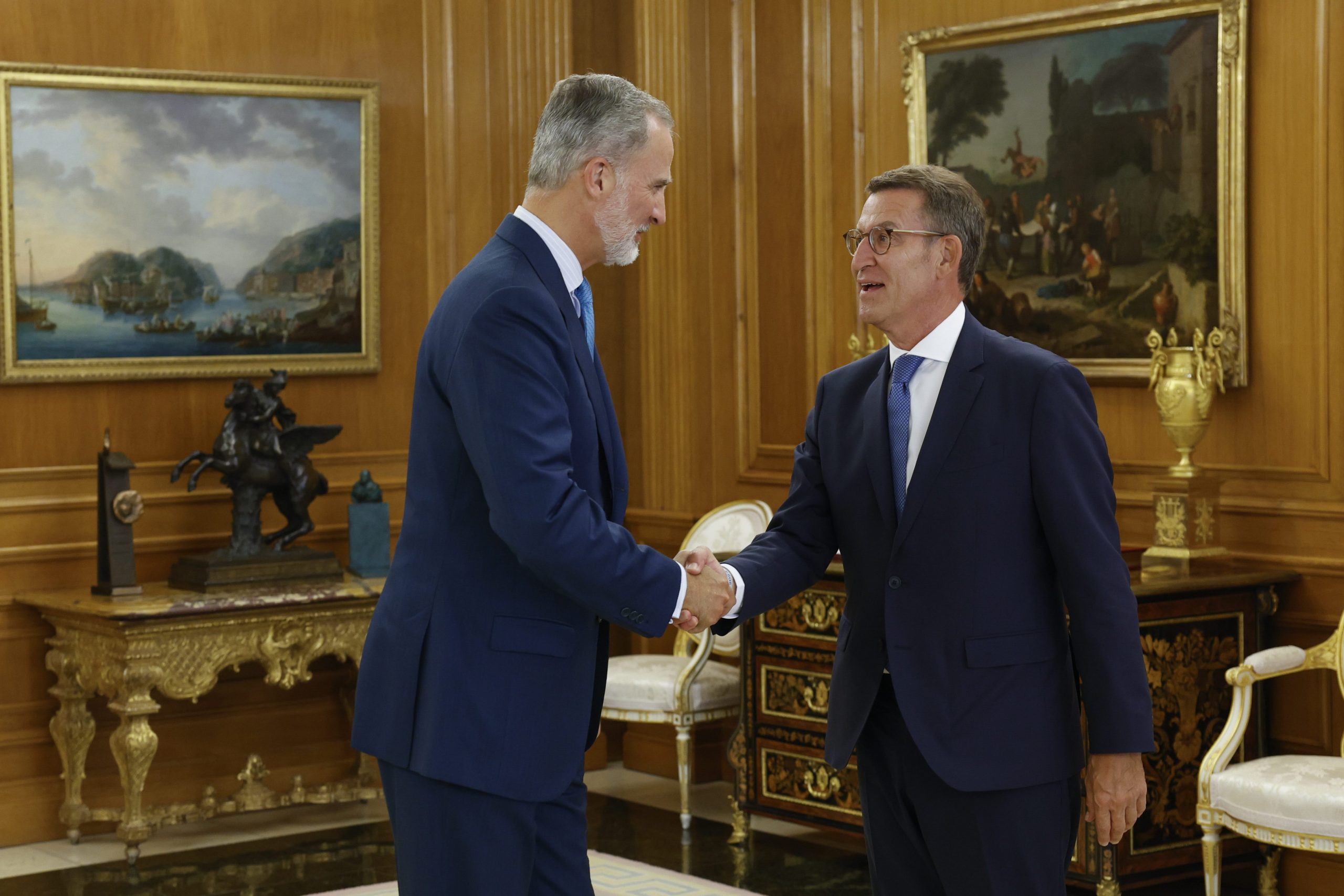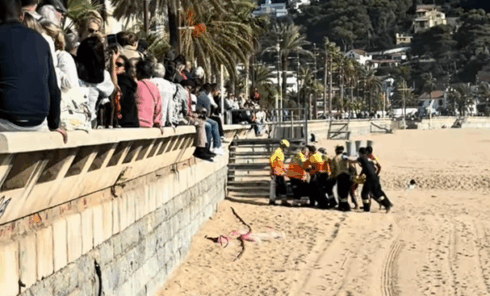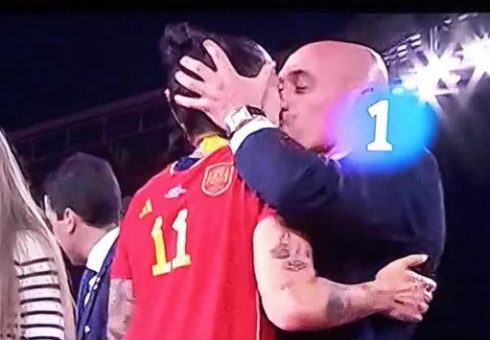SPAIN’S King Felipe VI on Tuesday night proposed the leader of the conservative Popular Party (PP), Alberto Nuñez Feijoo, as the candidate for prime minister at an investiture vote in the Congress of Deputies. The move came after two days of talks between the monarch and political leaders, and despite the fact that Feijoo’s bid for power is almost certainly doomed to failure.
Both Feijoo and the caretaker prime minister, Pedro Sanchez of the Socialist Party, had conveyed to the king their intention to stand as candidate at an investiture vote, the date of which is yet to be set.
Feijoo won the July 23 general election, but with 137 seats in the 350-seat lower chamber, fell well short of a victory. Opinion polls had predicted that he would be able to form a coalition government with far-right Vox, but that party fared worse than expected at the vote and only collected 33 seats for a total of 170.
Two smaller parties, the Navarrese People’s Union and the Canarian Coalition, have also promised their one seat each to Feijoo at an investiture vote, but that leaves him with 172 votes – four short of the absolute majority of 176 that he needs for success.
No other party is currently willing to back the PP due to its partnership with Vox, a party that included a number of extreme proposals in its manifesto ahead of the elections.
Sanchez also currently lacks assured backing. His Socialist Party won 121 seats at the election, and he can count on the 31 seats of new leftist alliance Sumar (which has absorbed a number of smaller parties, including Sanchez’s previous coalition partner Unidas Podemos).
The caretaker prime minister, however, has been arguing that these 152 seats are his point of departure, and that he will be able to muster another 26 votes from nationalist and separatist parties such as Together for Catalonia.
To prove this, he has been citing his party’s success last week at the vote to choose the new speaker of Congress. His candidate, Francina Armengol, won the poll with 178 votes.
However, Together for Catalonia – a pro-Catalan independence party that is led by the fugitive from justice, Carles Puigdemont – is demanding major concessions in return for supporting Sanchez, meaning that his success at an investiture vote is still far from assured.
The unprecedented situation in modern Spanish politics, where the two most likely candidates for prime minister were meeting the king without guaranteed support for their bids for power, put the king in a difficult position.
Legal experts cited by Spanish daily El Pais argued that the monarch had three choices in this situation: propose Feijoo as candidate given that he had won the most votes at the election; choose Sanchez instead, given his greater probability of securing a parliamentary majority; or to take more time talking to party leaders without proposing a candidate.
Most-voted party
In the end, the monarch chose to go with the first option, and a statement from the royal household released on Tuesday night made clear that Felipe was prioritising the ‘custom’ of the most-voted party being presented first.
The issue now will be the timings. If Feijoo fails to win his investiture vote, as is expected, then another candidate can be presented by the king. If that bid is also unsuccessful, then the clock will start ticking for a new general election.
Should the investiture vote take place at the start of September, this fresh election could fall around the weekends of Christmas or New Year. This would undoubtedly be hugely unpopular among Spaniards, who have just had to turn out and vote in the summer month of July for the first time since Spain returned to democracy after the death of dictator Francisco Franco in the 1970s.
Read more:
- Spain’s caretaker prime minister assures king he has the support needed to be voted back into office
- Spain’s King Felipe VI begins talks with political parties in bid to find a prime ministerial candidate
- The role of Spain’s King Felipe in forming new government with political parties seeing monarch next week
Click here to read more Spain News from The Olive Press.








